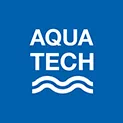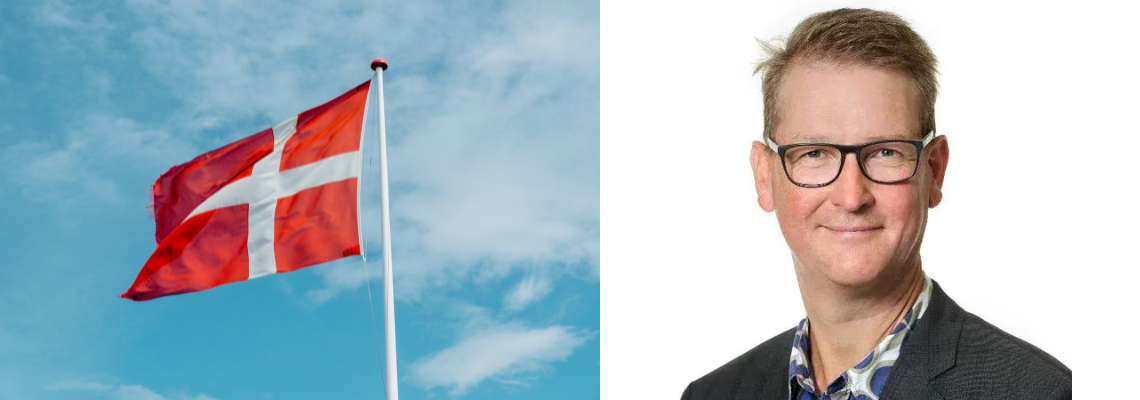“So good the Danes hate to see it leave”.
That was the tagline for Carlsberg Export, a premium-strength Danish pilsner style lager.
A famous advertising campaign portrayed a Carlsberg export truck driver broken down. After knocking on a random elderly lady’s house to call for assistance, he falls into a trap, with the lady laughing and rolling a rug over the trapdoor. Her fiendish efforts, of course for comedic marketing impact, were designed to help keep the beer on home turf.
While beer and water have a lot in common (you cannot have the former without the latter), the analogy between Denmark exporting its premium beer and water expertise aren’t a million miles apart.
The country has previously witnessed superb success in wind energy, growing an industry that accounted for nearly 80 per cent of the country’s exports in recent years, valued at over 5.8 billion euros.
Following the success, the government is actively looking at whether water technologies and expertise, could be the next wind. The Danish Export Association often has a visible presence at international water events.
Boasting abundant aquifers and 120,000 lakes, the nation could be called blessed with water. There are over 80 utility companies providing water and wastewater services across the country to its 5.7 million population.
One utility that is increasing its voice in international discussions is VCS Denmark (VandCenter Syd), which provides drinking water and wastewater services to, Odense, the third-largest city of Denmark. It is also part of 3VAND, a collaboration of the utilities in the three largest cities in Denmark: HOFOR, BIOFOS, VCS and Aarhus Vand.
Mads Leth has been at the helm of VCS Denmark as CEO since 2017, most recently addressing a variety of challenges.
“Looking historically the city has doubled in size every 25 years,” he says.
“We expect that to continue. But then the next question is what will happen to the water consumption? Looking at the water consumption in the sixties and seventies was extremely high. That has been lowered to a very low specific consumption now mainly due to taxation. Water is quite expensive in Denmark as a result.”
Getting the price of water right
On the topic of water’s value, getting the price right early on has meant that consumption is lower than many of Denmark’s European cousins. A higher price means people consume less.
For example, while in the Netherlands a policy is in place to drive down personal consumption from 130 litres to 100 litres per person, Denmark has already achieved this.
Today, the average consumption across the utility, is already 100 litres per person per day.
Discussing the nationwide tax, he says: “It was actually enforced I think 25 years ago by the government that we should have a tax on the drinking water. The consumer only pays a third of the total price on the drinking water.
“And then you also pay the most expensive part of the water price is actually the collection and the treatment of the wastewater. It’s a combined price of drinking water, taxes and then collection, and treatment of wastewater.”
'The average consumption across the utility, is already 100 litres per person per day.'
Discussing the 100 litres consumption, the CEO adds that it’s “difficult to get lower” but that the utility “sees other sources of water interesting”.
Problematic PFAS
When it comes to what’s keeping the CEO up at night, Leth, like all other utility CEOs, is concerned about PFAS.
Perfluoroalkyl and polyfluoroalkyl substances, known as “forever chemicals” for their incredibly strong carbon bonds rendering them unbreakable, are without a doubt one of the biggest challenges being talked about this year.
“Historically supplying drinking water in Denmark has been easy because the groundwater was clean and you had plenty of groundwater. That whole scenario is now changing. Now we find contaminants of pesticides and PFAS in the groundwater,” says the CEO. “Maybe there will also be a focus on different sources and thereby different qualities of water.”
The CEO is convinced that new regulations across Europe could completely change the business.
“PFAS is of high concern right now because it's found almost everywhere you look. You'll find traces of PFAS but actually PFAS is just a group of compounds. There's also medicines, oil residues and hormones. I think within a few years’ time we will see new requirements, new regulations both for drinking water but also especially for wastewater handling and treatment.”
One area Leth is looking into is the use of biosolids from wastewater treatment plants. Currently, the official recommendation in Denmark is to use biosolids for direct land application, or to recirculate the phosphorus and the nitrogen to agriculture. This could potentially not be allowed in a few years’ time, the CEO adds.
However, Leth does predict a lot of “technological development over the next years, with more efficient treatment technologies”.
Aligning business and water strategy
Moving the discussion onto digitalisation, a topic he is often seen speaking about at global events, Leth is adamant that future decision making will fundamentally need to be based on solid data.
“We base all our of decisions on data,” he says. “We have collected in huge amounts of data over the years, including operational data assets. Now we also have extremely elaborated models running, simulating climate change and heavy rainfall. We can tell how that will affect the city and the collection system and the treatment plans and the receiving water bodies.”?
VCS Denmark is now trying to digest, analyse and use all of that data in its decision making. For example, addressing questions such as: where should we invest? Where will we see the biggest environmental impact on its investments?
One question that comes from this, according to the CEO, is how can one utility’s data benefit another, even in other countries?
“I'm still trying to find a good answer to that,” he says, adding: “if we set all our data free, who could benefit from that? I haven't seen the good cases yet.”
Data sharing, especially between utilities, is often blamed for holding back the acceleration of digitalisation in water. The CEO is keen to change the paradigm on this.
“We are more than willing to share most of our data,” he adds. “We could share the water consumption from all our customers' metres, as one example. We haven't had anyone asking for the data yet.”
He describes it as not yet “setting this data free”, with the utility currently evaluating where other people can benefit from this data.
“Data sharing or knowledge sharing is extremely important,” adds the CEO. “Historically, utilities have not been good at this and that is part of our strategy - we go to international conferences to share our knowledge. Sharing of knowledge and data is crucial to accelerate development.”
H2 heading: A utility’s role in innovation
I’m always interested in the question and discussion of whether it is the role of a water utility to be “innovative”, how this is measured and also the role water suppliers can play in accelerating the often-quoted slow rate of technology adoption.
Leth, as expected, has strong views on the subject.
“It's very important that we are not in it for the business,” he says. “Our part in technology development and being innovative should always be with other partners. It should be in partnerships with universities and technology suppliers and consultants and other utilities.”
He believes that utilities should never be the “owners of technologies” that it helps to develop but that there is a responsibility to help start-ups get into the market.
“We have a crucial role in the development but it's not a job for a single utility to do all the research and all the technology development by themselves. We should always look for the right partners for the right project.”
Water so good, exporting its success
Clearly, Leth is keen to continue his activities internationally, building relationships with other global utilities and helping to showcase the innovations underway in Denmark.
The country, much like its Dutch cousin the Netherlands, has a solid track record of mastering its water history to become stronger for the future.
However, being blessed with abundant clean water sources is one blessing that could change, especially given the threats of contaminants of emerging concern.
Leth is an articulate utility leader helping to put VCS Denmark on the global map.
While the Danes may have hated to see Carlsberg export leave its country, there is a clear opportunity to export water knowledge and technologies for the benefit of the wider water world. The utility has to date completed knowledge sharing projects in South Africa, Zambia and Dhaka in Bangladesh, for example.







